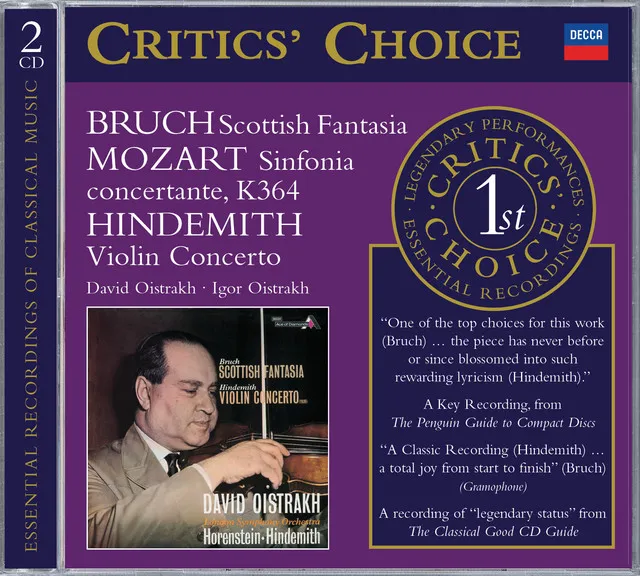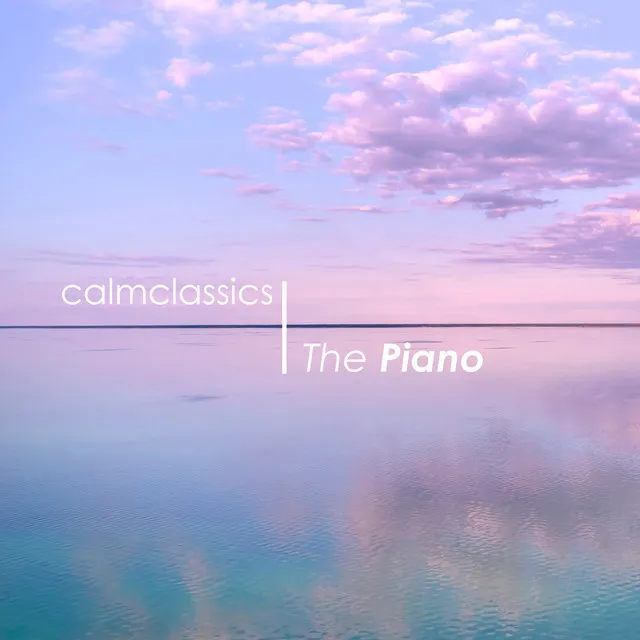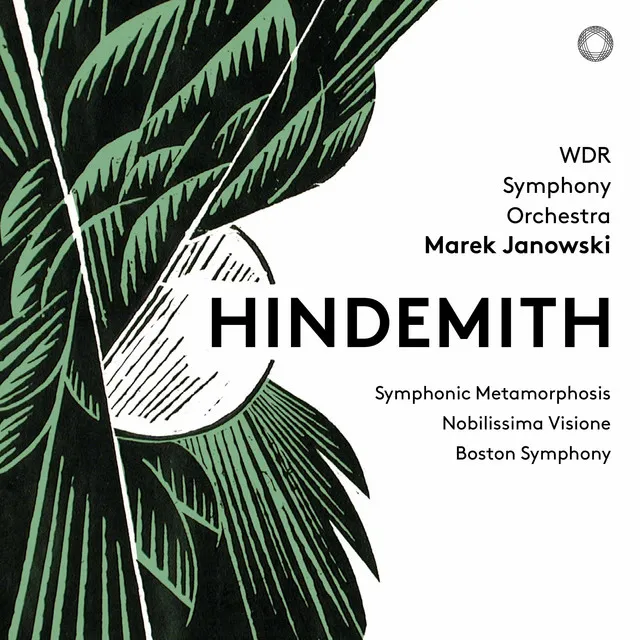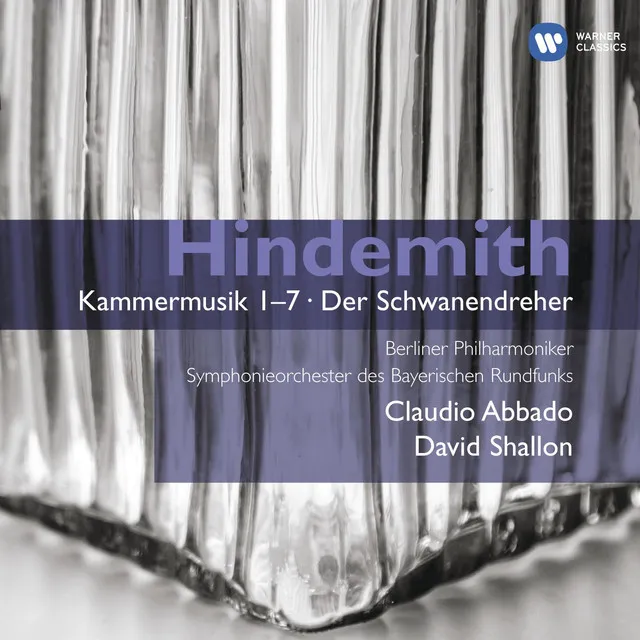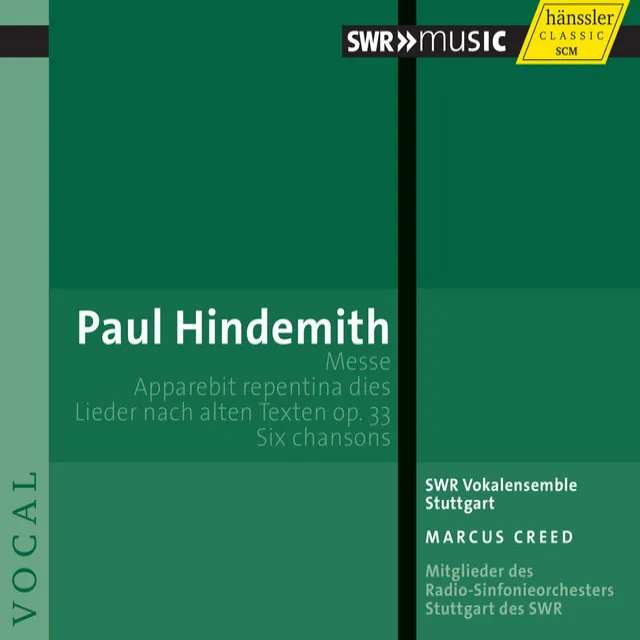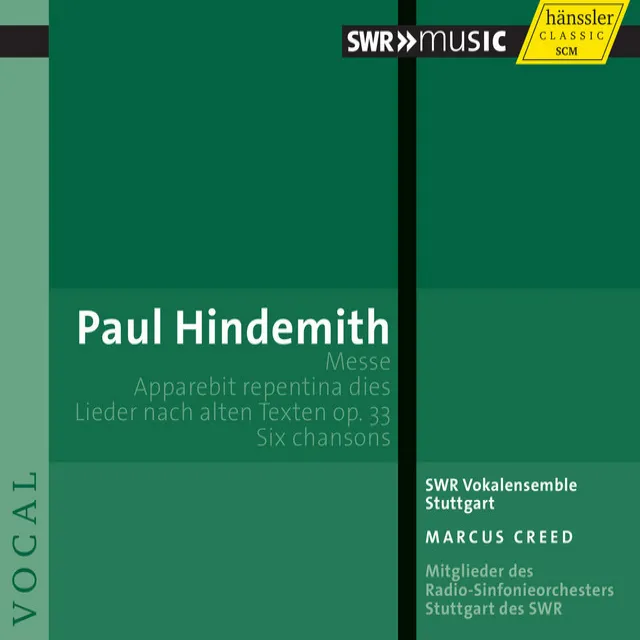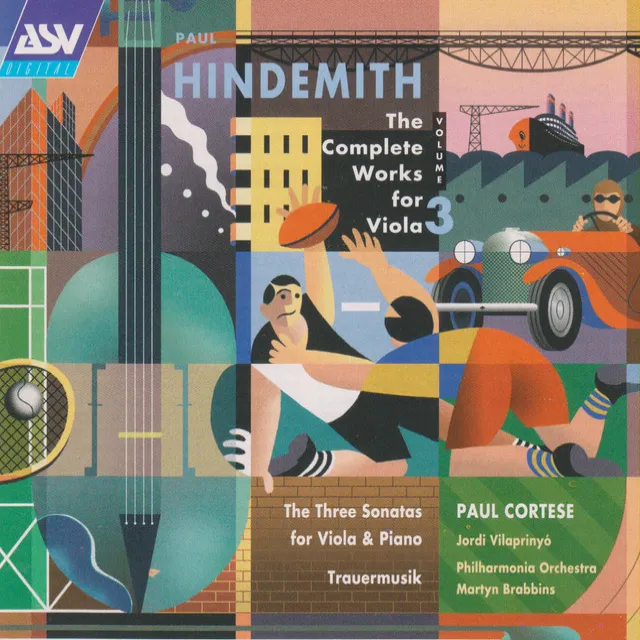Hindemith was a theorist, teacher, violist, conductor, and composer who is regarded by many as the foremost German composer of his generation, a central figure in music between the First and Second World Wars. His style combined neo-classicism with modern harmonic conventions and some jazz elements. Hindemith's works include opera, ballet, orchestral, choral, and chamber music. As a younger man, Hindemith idealized Gebrauchmusik, an aesthetic of use over beauty. Yet his best-known works, particularly the opera Mathis der Maler, are appreciated for their warmth; rich, even opulent orchestral colors and gestures; a unique multi-rhythmic sense; and flowing, rapid polyphony.
Born outside of Frankfurt, Hindemith moved with his family to the city in 1902. It was here, in 1904, that Hindemith began taking violin lessons. By 1908, he became a student of Adolf Rebner, a teacher at the Hoch Conservatory in Frankfurt, who arranged for Hindemith to be awarded a free place at the conservatory the following year. Although he had long been composing, Hindemith began to study composition formally in addition to continuing his study of the violin. However, he was forced to leave the conservatory in 1917 when he was called up for military service. He spent most of his service as a member of a regimental band stationed about three kilometers from the front line. After returning from the war, Hindemith again took to the concert stage with the Rebner Quartet, having switched to viola in 1919, but he began thinking of himself primarily as a composer. In this period, his music evolved from late-Romantic-era Expressionism meant for a specific purpose, occasion, or reason to a new style of absolute and objective music. In 1923, he was invited to join the administrative committee of the Donaueschingen Festival, a group over which he exerted an ever-increasing amount of control, programming works of such composers as Schoenberg and Webern. The next year, he married Gertrud Rottenberg, the daughter of the conductor of the Frankfurt Opera Orchestra, an ensemble in which Hindemith had been playing. His series of eight works entitled Kammermusik was composed during these years. In 1927, he received an appointment as professor of composition at the Hochschule für Musik in Berlin. In addition to maintaining an active performing career, Hindemith soon developed a strong interest in teaching and even took on an evening class at the Volksmusikschule NeuKolln. Early in 1934, the Nazi party began a campaign to discredit Hindemith, which culminated in a boycott of the composer's works announced by the Kulturgemeinde in November of that year. In January 1935, Hindemith was given a six-month leave from the Hochschule. However, as the boycott of his music was not endorsed by the music division of the Nazi party until 1937, he was allowed not only to return to teaching, but also to undertake a series of concert tours abroad, to have his music published, and to enter into an agreement with the government of Turkey to build an organized musical life in that country. Also in 1935, Hindemith completed his most famous opera, Mathis der Maler, which he had begun in 1933. Given the political circumstances, it was not premiered until 1938, in Zurich, after Hindemith had left Germany for Switzerland. He then moved to the U.S. in 1940. After a series of lecture and teaching engagements that had been arranged by friends, he took a position at Yale, teaching composition and, from 1945 to 1953, conducting the Collegium Musicum. Hindemith became an American citizen in 1946. In 1951, he accepted a position at the University of Zurich and, after retiring from Yale in 1953, took up permanent residence in Switzerland. Hindemith had been composing sonatas for every orchestral instrument over the entire course of his career. The last one he completed was the Tuba Sonata, which dates from 1955, the same year he retired from his post in Zurich. After that, he became more active as a conductor. In November 1963, he was taken ill and transferred to a hospital in Frankfurt, where he died of acute pancreatitis. ~ TiVo Staff, Rovi
